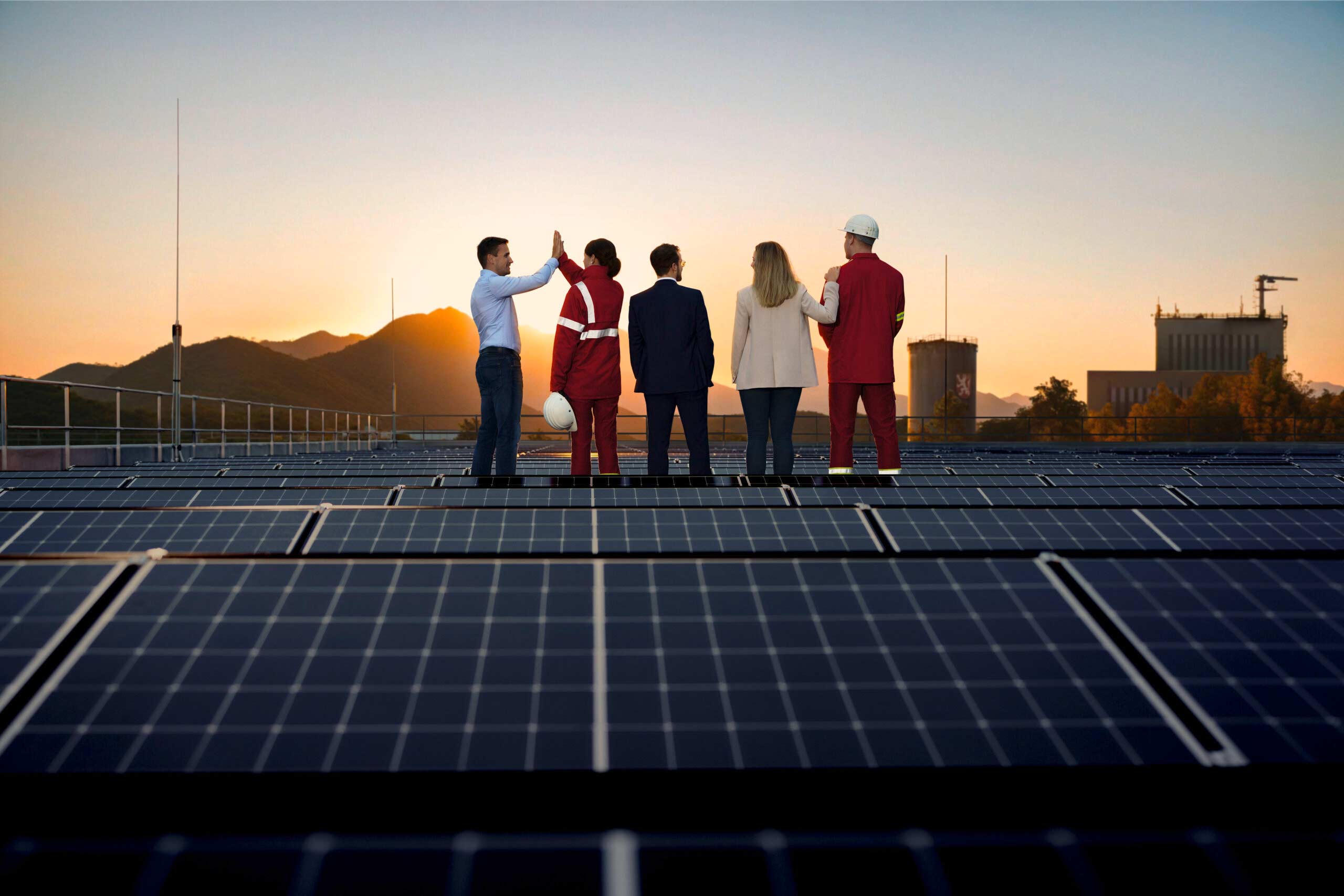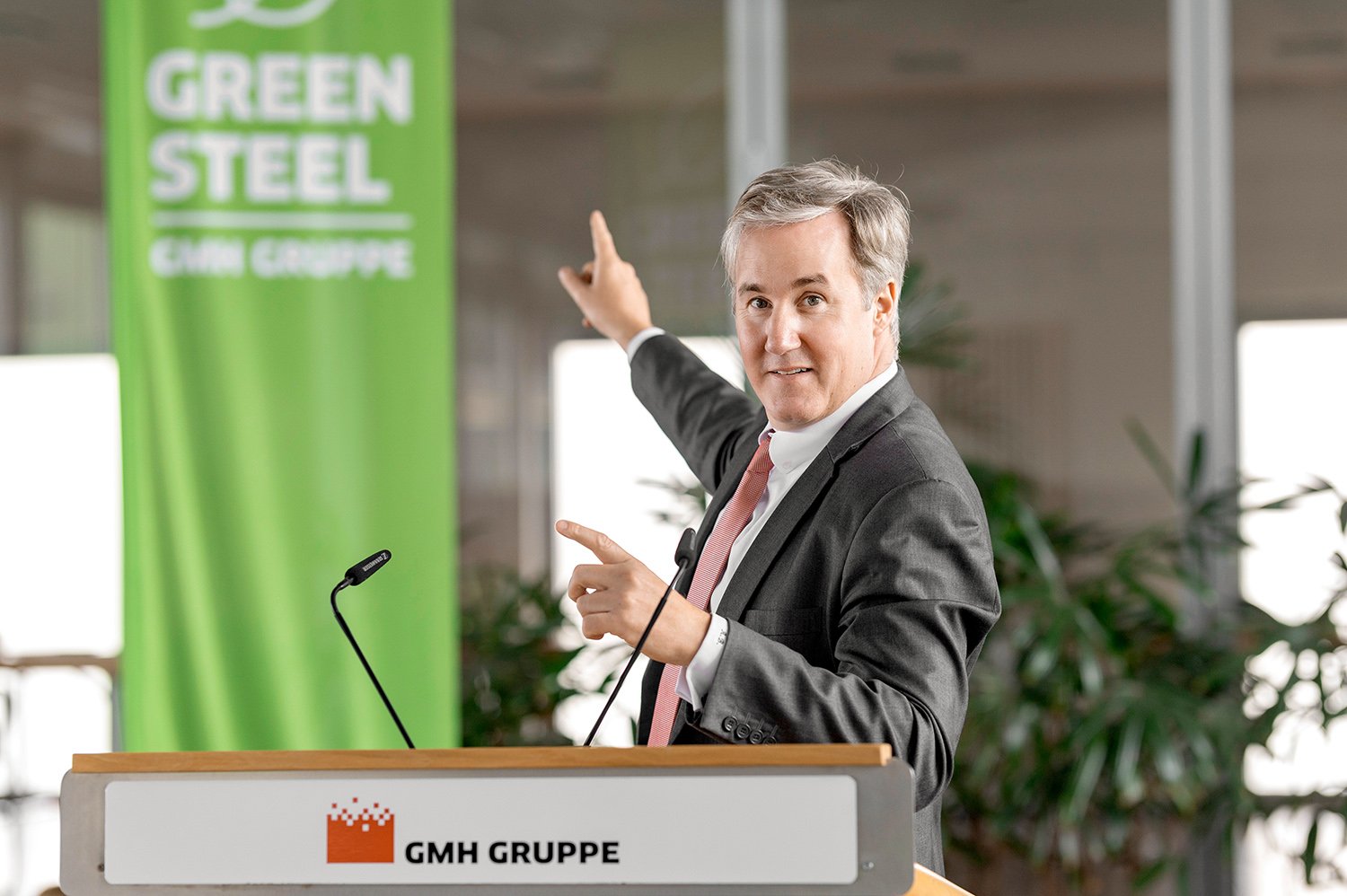
GMH Gruppe joins Science Based Target Initiative (SBTi). Research-grounded climate protection aligned with the Paris Agreement
GMH Gruppe`s climate targets will be scientifically validated and internationally transparent.
As part of GMH Gruppe’s journey towards achieving climate neutrality by 2039, the Science Based Targets Initiative (SBTi) will now support and document the company’s processes and progress in reaching “net zero” emissions.
The SBTi is a collaborative effort involving the Carbon Disclosure Project (CDP), the United Nations Global Compact, the World Resources Institute (WIR), and the World Wide Fund for Nature (WWF). The science-backed initiative aims to guide companies on their path to climate neutrality in an effort to prevent catastrophic levels of global warming. Joining the SBTi involves a validation process for the climate targets the companies set, as well as a general commitment to achieving “net zero” CO2 emissions by 2050.

“For GMH Gruppe, participation in the international SBT initiative is a natural step in the fight against global warming, allowing us to pursue our objectives with greater consistency and transparency”, says Dr. Alexander Becker, CEO of GMH Gruppe. “In addition to reducing direct emissions in the production process (Scope 1) and through external energy input (Scope 2), our focus is on significantly lowering climate-impacting emissions in the supply chain (Scope 3). This means carefully selecting suppliers who are equally committed to environmental, social and governance (ESG) standards, assessing their planned CO2 reductions and ensuring their transparent reporting. This approach aligns with our goal of a climate-neutral economy”, he explains. “By offering high-quality, low-emission steel grades, we support our customers on their journey to a sustainable future”.
The Group is dedicated to producing steel products in a climate-neutral manner by 2039. Thirty years ago, Georgsmarienhütte transitioned to electric steel melting, enabling up to an 80% reduction in CO2 emissions compared to traditional blast furnace production. GMH Gruppe aims to halve greenhouse gas emissions (Scope 1+2) by 2030 and reduce them by an additional 27.5% through the supply chain (Scope 3). This vision is backed by a detailed roadmap, with partner companies playing a key role.
As a pioneer in sustainable steel production in Germany, GMH Gruppe is continually expanding its low-emission steel offerings under various Green Steel standards. The company is also shifting from fossil-based electricity towards renewable-based electricity and from fossil coal to biogenetic carbon. Another cornerstone of GMH Gruppe´s CO2 reduction strategy involves preparing for a hydrogen-based industrial process conversion. To this end, GMH Gruppe is upgrading its furnaces and manufacturing processes to be hydrogen-compatible wherever feasible, aiming to be H2 -ready once the supply is stable.
Since 2022, GMH Gruppe has been part of the “Verband der Klimaschutzunternehmen e.V”, a national association of companies leading climate protection and energy efficiency in Germany. By joining the SBTi, GMH Gruppe has elevated its commitment to transparency and transformation onto a global stage, joining 8,000 companies worldwide that are emphasizing the critical role of emissions-intensive industries in the fight against climate change.
About GMH Gruppe
GMH Gruppe is a full-range supplier of steel as a primary material, melted from scrap, through to ready-to-assemble components. It is one of the largest privately owned metal processing companies in Europe. The group includes more than 15 medium-sized production companies in the steel, forging and casting industries, which are represented in over 50 countries. With more than 6,000 employees, GMH Gruppe generates an annual turnover of more than two billion euros.
GMH Gruppe is a pioneer in sustainable steel production and has been accepted into the ‘Association of Climate Protection Companies’. Based on the recycling of scrap metal, the company produces green steel and thus makes an important contribution to the circular economy. The use of electric arc furnaces at four sites reduces CO2 emissions by a factor of five compared to conventional blast furnaces. This also reduces the CO2 footprint of the customers supplied by GMH. These include companies worldwide from the automotive industry, mechanical and plant engineering, railway technology, power generation, transport logistics, aerospace, agriculture and construction machinery sectors. GMH Gruppe has set itself the goal of being completely climate-neutral by 2039. Further information can be found at www.gmh-gruppe.de/en/
About Georgsmarienhütte
Georgsmarienhütte GmbH from Georgsmarienhütte in Lower Saxony is one of Europe’s leading suppliers of crude steel, bar steel and bright steel made from quality and engineering steels. The company also manufactures pre-processed and, in some cases, ready-to-install components. Georgsmarienhütte is already one of the most climate-friendly steel companies in Germany. With its comparatively low CO₂ value chain, in which scrap is melted in the electric arc furnace and recycled into new steel, it makes an important contribution to the circular economy and is a pioneer in sustainable steel production. The methodology used by Georgsmarienhütte to calculate the product carbon footprint (PCF) has been validated by TÜV SÜD and is now used for more than a thousand steel variants.
In addition to the automotive industry and its suppliers, customers are served in particular in mechanical and plant engineering and the energy industry. Steel from Georgsmarienhütte is used wherever the load is greatest, where power is generated or transmitted and where safe and wear-resistant operation is important.
For inquiries
bmb-consult – PR-Agentur der GMH Gruppe
Simone Boehringer
Senior Editor & Senior Account Manager
GMH Gruppe
Luciana Filizzola
Director Sustainability and Communications